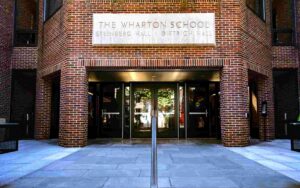Company bosses who excel at networking are usually good for business and new research is showing just how important a highly connected leader is to the bottom line.
A study of 1500 American companies over a 20-year period reveals that well-connected CEOs are less likely to mislead investors, manipulate earnings or conceal bad company news, lowering the risks of a stock price crash.
The findings have been published in the Journal of Behavioral and Experimental Finance.
Lead researcher, Finance Professor Chandra Krishnamurti from the University of South Australia, says the evidence shows that businesses led by CEOs with a large network of contacts are more stable and less likely to collapse.
“We looked at the data from 1500 US companies listed on the stock market and found a clear link between strong governance and managers who have an extensive network of contacts – from school days, business, government and industry,” Prof Krishnamurti says.
In contrast, less socially connected CEOs are more likely to hoard bad news relating to their company and when it does come out, their share price tumbles.
Prof Krishnamurti referred to the collapse of ABC Learning Centre Ltd in 2007 as an example of a company led by a CEO with few social connections.
“The founder Eddy Groves had just 20 connections within the company and very few outside, so in terms of centrality (extensive networks), he ranked at around 45 per cent.
“ABC was once the largest publicly-listed childcare company in the world with a market capitalisation of $4.1 billion. It grew very fast, aggressively expanding from Australia into the US and UK, but its business model was not sustainable. A 42 per cent fall in profits in 2007 meant it couldn’t service a $1.8 billion debt, triggering a large fall in the company’s share price and subsequent collapse.
“In this case, ABC Learning grew very quickly but its CEO was not well networked and could not sustain the growth.
“ASIC documents also show the company tried to mislead shareholders by using creative accounting to conceal its considerable losses, failing to raise red flags revealing ABC’s true financial position.”
Prof Krishnamurti says extensive social networks give CEOs greater access to information and ideas, leading to lower costs of borrowing and a better reputation.
“From a board’s perspective, members should take this into account when hiring. If you have two managerial candidates who are similar in other ways, the one who is more socially connected is probably the better bet,” he says.







